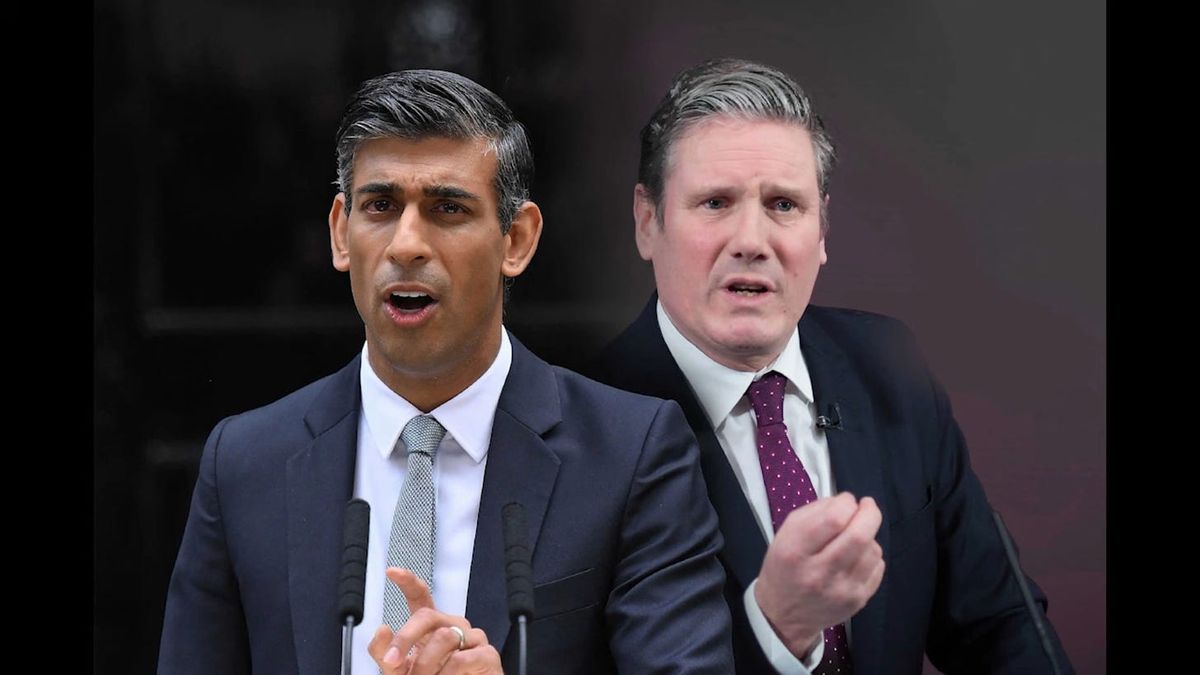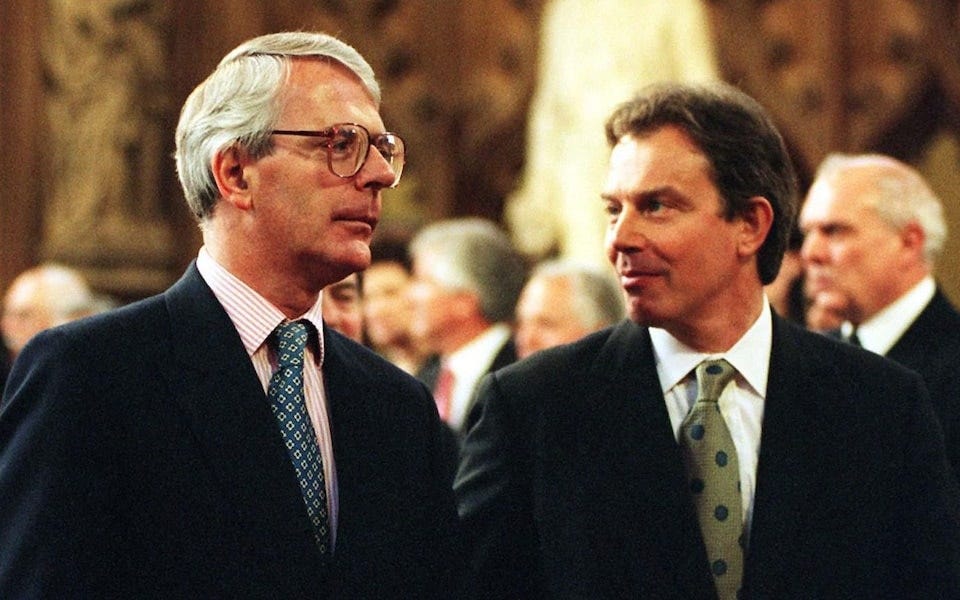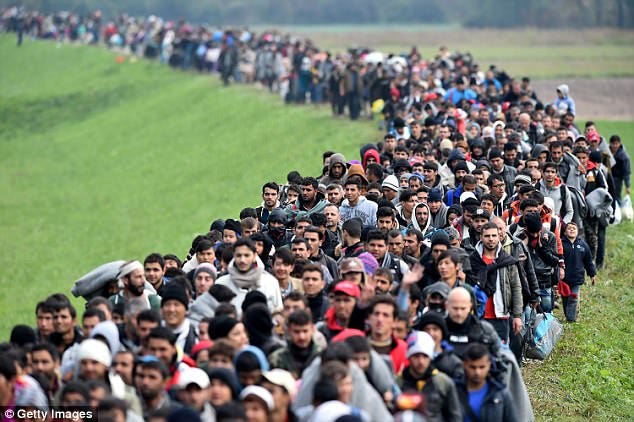Reflections #9

The Uniparty
I have been meaning to write about this topic for a long time now. The Uniparty comes up time and time again, especially on Unpopular Opinions with my good friend the Academic Agent and fellow guests. In layman’s terms, the basic premise behind the idea of the Uniparty is that no matter who is in Number 10, the United Kingdom is governed in pretty much the same way with, broadly speaking, very similar outcomes and results. We are not governed by the Conservatives or Labour but by the Uniparty: they comes from similar backgrounds, they represent the same interests and have similar policies, in fact there is hardly a thread of hair that separates them.
Curtis Yarvin makes the point that there is an inner party and an outer party but they are all part of the same nexus of institutional power, a power structure that moves us in the same direction. He is right. This is the unspoken truth about British democracy, revealing what a farce democracy in Britain has truly become. This is not about democracy, this is about containment. We are ruled by the neoliberal global consensus, democracy has nothing to do with it. The real battle in Britain is not between Labour and the Conservatives or left versus right but between the people and the elites. Between those who advocate for real, formative change and those that perpetuate the status quo. It is a similar case in most western democracies. In theory, both parties rally their loyal voter base during the election campaign by appealing to the low-hanging fruit of everyday public discourse but, in practice, when they get into power they represent their various special interest groups, donors and financial benefactors.
The reality is that both the main parties in the United Kingdom are pro-globalisation, pro-debt, pro-mass immigration, pro-high taxes and pro-big state. What is more, neither party can be trusted to protect British culture and values and defend the British way of life. They are both comfortable with a London-centric economy based around financialisation that in turn, and almost by definition, puts the interests of global capital first. Both the Conservatives and Labour are managerial in nature, having consolidated the managerial system by expanding the size of the government; now consisting of a huge civil service, numerous government quangos, task forces and advisory groups. The culture of managerialism has spread to the NHS and the police force as well.
There is no coherent philosophy that separates Labour and the Conservatives. Both parties support the free movement of goods, capital and people across borders. They want to open up the UK to foreign companies, overseas investors, global capital and foreign students and in their eyes the more the better, there is no upper limit. Both are essentially globalist in nature favouring Britain’s relationship with both the EU and the United States and, in the process, dissolving power and sovereignty to both the aforementioned. These are relationships in which Britain has an overwhelmingly deferential position, to say nothing of the numerous multilateral organisations and binding treaties that further dilute British power and sovereign rule.

John Major was as pro-European Union as Tony Blair was. Similarly, Tony Blair’s Labour party are to all intents and purposes as right wing as the Conservatives are today. Ultimately, neither are explicitly more left wing or right ring than the other, certainly not if they are judged by their actions. However, looking at the Uniparty through the prism of left-right politics is to miss the point somewhat. The Uniparty is not governed by ideology but by the desire to hold on to and wield power.
Under both the Conservatives and Labour, we have seen immigration reach historically unprecedented levels. Immigration into the country was slightly above 327,000 arrivals when Labour entered in 1997 and by the time they had left in 2010 we had over 600,000 annual arrivals. The Conservatives crossed the 800,000 mark by 2018 and then a staggering 1.2 million arrivals by 2022.[1]

Both have presided over a rising national debt and huge budget deficits. According to the Office for National Statistics’ own figures, the UK’s debt-to-GDP ratio under Labour went from 37.6% in 1997 to 65.3% by the time they vacated number 10, the Tories continued that trend and the nation’s debt currently stands at 97.6% of GDP.[2]
Both parties have not only allowed the main institutions to become politicised but have openly encouraged socially liberal policies. Over time, the Metropolitan Police, the education system, the Church of England and the NHS have all been politicised to the nth degree. This unwavering belief in socially liberal policies has led to the rise of woke culture and identity politics that have, in turn, severely damaged Britain’s national identity, whilst on the ground level we are no longer a cohesive and unified society. In fact, it is no understatement to say that culturally we are a chaotic mess and both parties are to blame for this.
The prominent Canadian-American author David Brooks, referred to western elites as ‘bobos’; short for ‘bourgeois bohemian’, a coming together of fine dining, cosmopolitan art critics drawn from high society (Bohemians) coupled with the capitalist class (the Bourgeoisie). Peter Hitchens frequently describes Britain’s political class as ‘metropolitan liberals’. Matthew Goodwin, a British writer and polemicist, has pointed out on several occasions that most of Britain’s political elite have attended many of the same private educational institutions, this invariably includes progressing onto an Oxbridge university, they live in the big cities and come from well-off families and affluent backgrounds and are defined by a set of ‘luxury beliefs’. Rishi Sunak, Gordon Brown, Boris Johnson and Kier Starmer have all attended the World Economic Forum’s (WEF) annual meeting in Davos and are closely aligned with the multilateral organisation. As I have explored elsewhere, many have deep ties to the City of London and global finance as well: Osborne having advised the U.S. asset management firm BlackRock and the venture capital firm 9Yards Capital, prime minister Rishi Sunak has worked at various hedge funds and investment firms, most notably Goldman Sachs between 2001 and 2004, meanwhile former prime minister David Cameron lobbied on behalf of Greensill Capital for several years. Tony Blair was a special adviser to the investment bank JPMorgan and to Zurich Financial and was also given a similar role at Lansdowne hedge fund.* Our elites’ luxury beliefs are shaped by their privileged upbringing: they have the same policies because they have the same beliefs, and they have the same beliefs because they come from very similar backgrounds.
Ultimately, both parties have been responsible for imposing top-down radical change on the country. Under the Uniparty, Britain has become a fiefdom for the super-rich and global elite yet an increasingly difficult and unpleasant land for British citizens to prosper in.
Notes
[1] Statista (2024) Long-term migration figures in the UK 1964-2023. https://www.statista.com/statistics/283287/net-migration-figures-of-the-united-kingdom-y-on-y/.
[2] PS: Net Debt (excluding public sector banks) as a % of GDP: NSA - Office for National Statistics (2024). https://www.ons.gov.uk/economy/governmentpublicsectorandtaxes/publicsectorfinance/timeseries/hf6x/pusf.
(*) Though these appointments came largely after their time in government, there is still an unmistakable pipeline between the office of number 10 and high finance.
Dissident’s Domain is a reader-supported publication. To receive new posts and support my work, consider becoming a free or paid subscriber.Subscribe